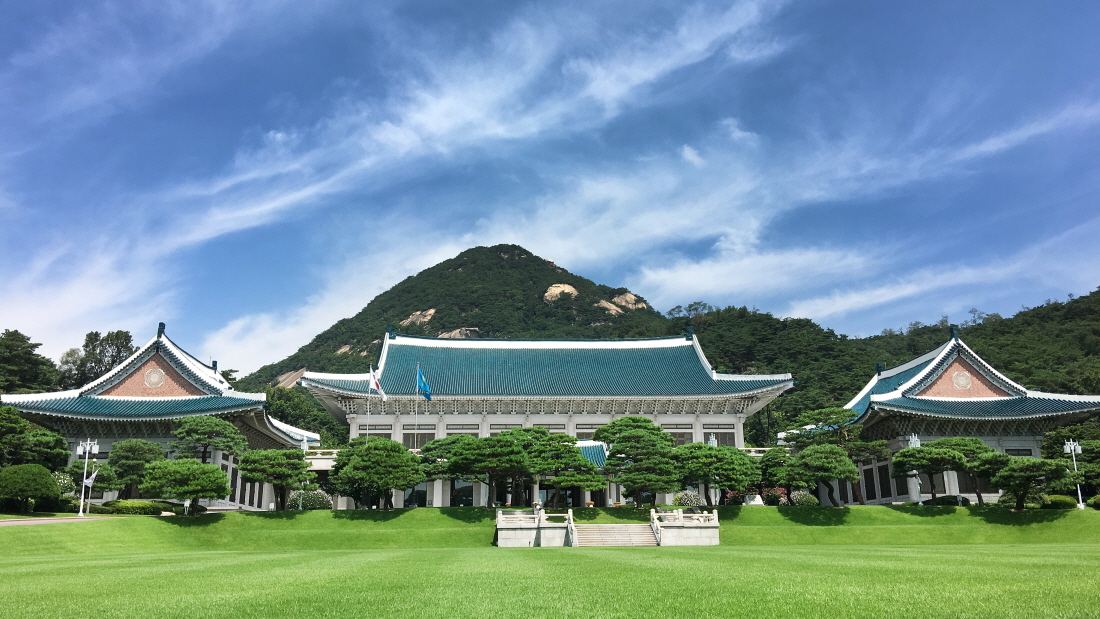이 웹사이트는 제19대 대통령 임기 종료에 따라 대통령기록관이 「대통령기록물 관리에 관한 법률」에 의해 이관받아 서비스하는 대통령기록물입니다. 자료의 열람만 가능하며 수정 · 추가 · 삭제는 불가능합니다.
다만, 「개인정보보호법」에 의하여 개인의 정보를 보호받기 원하시는 분은 관련 내용(요청자, 요청내용, 연락처, 글위치)을 대통령 웹기록물 담당자(044-211-2253)에게 요청해 주시면 신속히 검토하여 조치해 드리겠습니다. 감사합니다.
SPEECHES & REMARKS
BRIEFINGS
Message from President Moon Jae-in on 41st Anniversary of May 18 Gwangju Democratization Movement

“This is May which never dwells on the past or today.”
May in Gwangju has come around again. The way to the May 18th National Cemetery and Mangweol-dong Cemetery must be lined with white blossoms from the ipap namu, or fringetrees, that look like cooked rice.
A citizen army, rice balls, taxis ferrying the injured to hospitals and lines of people willingly donating blood – this united spirit to protect and save neighbors is democracy. Today, we are grateful for and revisit the fact that this spirit has empowered us to build our proud democracy through the candlelight revolution and overcome the COVID-19 pandemic.
A May of hope will be ushered in by uncovering the truth and restoring the victims’ honor. Last year, the May 18 Democratization Movement Truth Commission began to investigate in earnest those cases involving human rights abuses, violence, massacres and the secret burial of victims. This past March, a former paratrooper deployed in Gwangju during martial law in May 1980 met with a bereaved family in person and sought forgiveness. It was a time for reconciliation and healing.
Last week, several martial law soldiers testified courageously that even machine guns and snipers were deployed to aim and shoot directly at citizens. In this way, we are approaching the final truth of Gwangju. I am grateful from the bottom of my heart to those who have not turned a blind eye to the truth.
We stand together with the Gwangju of May. A master plan has been finalized to restore the former Jeollanam-do Provincial Government office building to its original 1980 look. Martyr Park Yong-joon produced “Tusahoebo,” a resistance bulletin for Gwangju citizens, by using a steel pen to transcribe text on stencil paper. Though a gun from martial law troops took his life, the commemorative “Park Yong-joon Font” will return him to our hearts. These are the gifts of May for our future generations who will write a new chapter in the history of democracy.
We remember Jürgen Hinzpeter, a journalist whose real life was portrayed in the film “A Taxi Driver.” Hinzpeter informed the world of the horrors of Gwangju in May and reported the incident after staying in the city until the end of the movement. In commemoration of his spirit, the Hinzpeter Awards will be presented beginning in October. It will be a gift through which we can share with citizens around the world the democratic values achieved by Gwangju.
We see yesterday’s Gwangju in today’s Myanmar. I sincerely wish that the Gwangju of May and the journalistic spirit of Hinzpeter become a source of hope for Myanmar.
In heartfelt commemoration of the souls who sacrificed themselves for democracy in May, we pay respect and express sympathy to the wounded and bereaved families who have endured hard times. A May of democracy, human rights and peace will not just remain in the Gwangju of yesterday but will vigorously move forward step by step toward tomorrow and the rest of the world.



